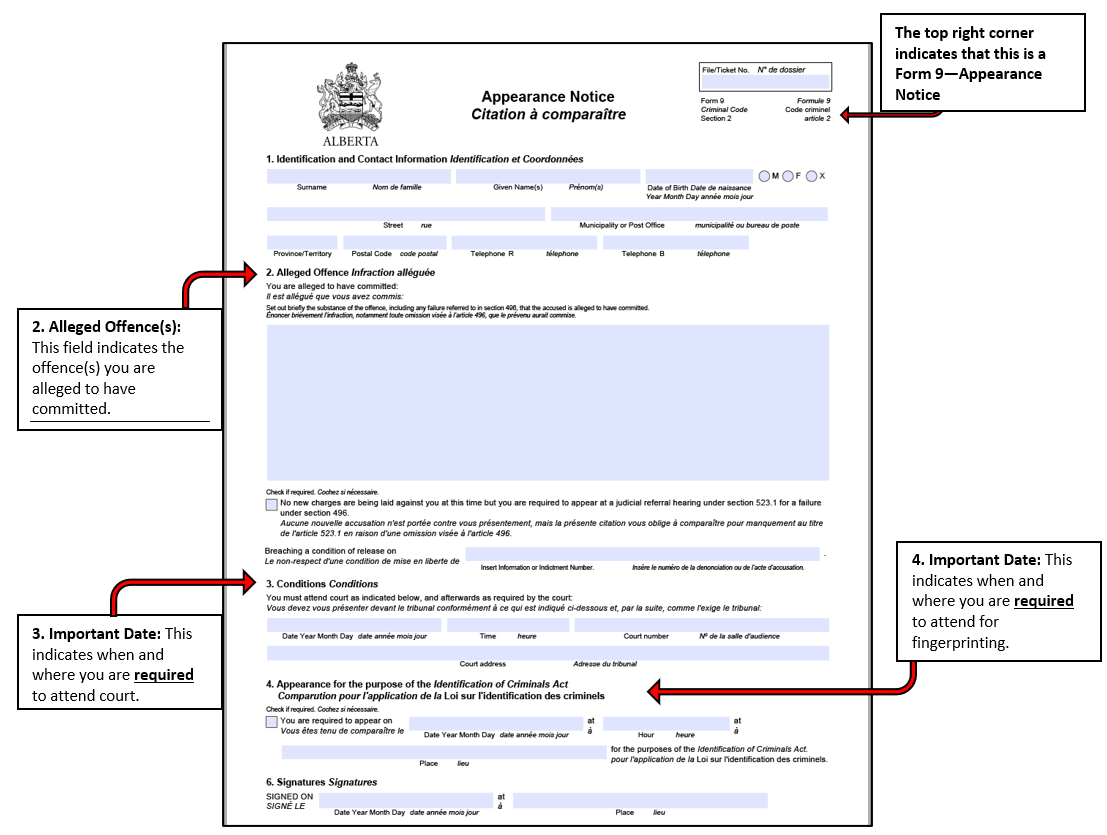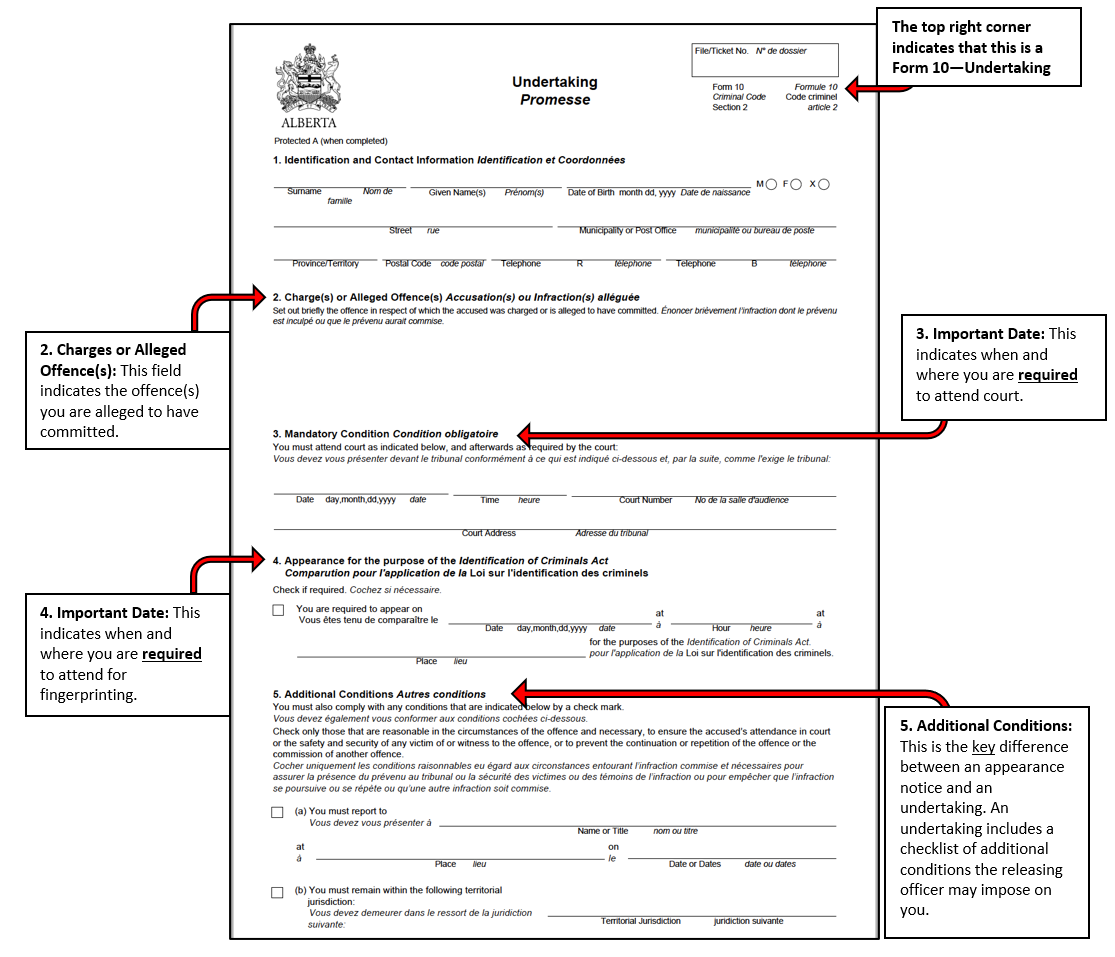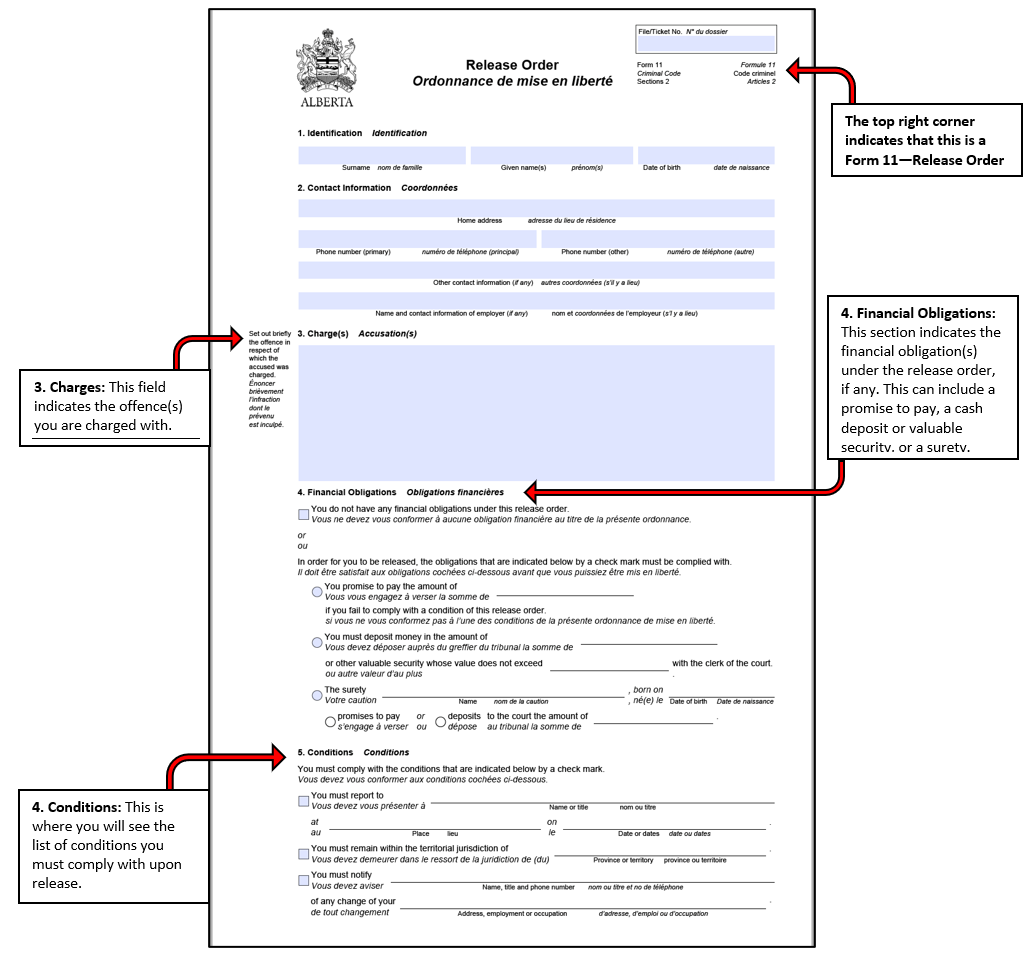Bail Hearing Lawyers Edmonton
If you are reading about bail, it is most likely because someone you care about has been arrested and taken into custody, or you have an upcoming date from the police and want to know what to expect. Bail may also be referred to as “Judicial Interim Release.” Both terms refer to the temporary release of an accused person while their charges progress through the court system.
The bail process is one of the most fundamental steps in the criminal process. Whether you or someone dear to you is released, and the conditions of that release, will set the stage for the rest of the proceedings.
For many alleged crimes, you or your loved one may be released by a peace officer directly. However, factors such as the circumstances of the crime and the existence of a criminal record may make it necessary to hold a formal bail hearing.
Police agencies have varying policies surrounding when a person can be released immediately upon being charged, and when they must appear in front of a judge or justice of the peace. The most challenging cases that typically warrant intervention by defence counsel, are those in which police policy mandates an appearance in front of a judge or justice of the peace.
In such cases the person charged is usually detained in custody for a prolonged period while awaiting the next available justice of the peace or provincial court judge. In Alberta, accused persons are detained and taken to what is called the Court Services Section (aka Arrest Processing Unit) in the nearest city. The police will not release any information, nor will they confirm if the person is being held there unless the caller is a lawyer or the person detained is a minor.
Types of Release
There are several forms of release available to the police and the court.
The most common types are:
- Appearance Notices;
- Undertakings; and
- Release Orders.
Your particular circumstances and the type of offence you are charged with will likely dictate the manner in which the police proceed.
Appearance Notice
Release by way of an Appearance Notice is typically reserved for detained people with little to no prior criminal history, and for relatively low-level criminal charges. For this type of release, police exercise their discretion, and a formal bail hearing is not required.
The release conditions associated with these documents are very minimal. The most important condition is that you attend court on the specified date and continue to attend thereafter as required. There will also likely be a condition stating that you must attend a police station for the purposes of “identification,” which is a fancy way of saying fingerprinting. It is critical that you don’t miss either date, as a warrant will be issued for your non-attendance.
If you have received an Appearance Notice, this will be indicated at the top of the form. Additionally, you will see “Form 9” in the top right corner.
Below is an example of an Appearance Notice, highlighting the most critical information.

Undertaking
The police may require that you sign an undertaking, in the event, they feel your circumstances require more onerous conditions. Like the appearance notice, an undertaking has two very important dates: the fingerprinting date and the court date. In addition, it can include a variety of conditions.
Some of the most common additional conditions are:
- Keeping the peace;
- Reporting to the police;
- Curfew;
- No contact with a specified person or persons;
- Non-attendance at a specific address or location;
- No leaving the province; and
- No alcohol.
If any of the conditions the police propose in the undertaking seem excessive, it may be possible to negotiate them. However, if you really want to contest them, you will be held in custody until you are able to appear in front of a judge or justice of the peace. One of our lawyers can assist in negotiating these conditions with a Crown Prosecutor at or before your first court appearance. If you do sign the undertaking, be sure to follow the conditions until you are able to have them reviewed.
If you have received an undertaking, this will be indicated at the top of the form. Additionally, you will see “Form 10” in the top right corner.
Below is an example of an undertaking, highlighting the most critical information.

Undertaking forms are long and can include many different conditions, some of which may be hard to navigate. Our experienced bail lawyers are available to go over your undertaking in detail to ensure you understand your conditions and to look into the possibility of negotiating them to be less onerous.
Release Order
In some circumstances, the police will not release the accused with an appearance notice or an undertaking. Instead, the person will be held in custody until a formal bail hearing is conducted. The bail hearing must be held within 24 hours, a period that starts from the moment of arrest or detention rather than the time when you are brought to the police station or courthouse. The hearing will take place at the nearest provincial courthouse.
Release orders are reserved for more serious circumstances.
Common examples include:
- Where serious charges are involved;
- Where the accused is a flight risk;
- Where there is a significant risk that further offences will be committed while released; and/or
- Where there is a significant criminal history.
In such circumstances, the police either do not have the discretion to release the person themselves or are bound by policy to conduct a formal bail hearing.
While section 515(1) of the Canadian Criminal Code allows a judge to issue a release order without conditions, they frequently require a cash deposit, promise to pay, or a surety.
- Cash Deposit: requires a specified amount of cash to be deposited before release is authorized. This cash deposit can be paid at any bail hearing office in Alberta.
- Surety: requires that someone (usually a friend or relative) agrees to supervise the accused in the community while the accused is on release. The surety will be expected to either pledge money or other collateral to the Court, which the surety would be liable to forfeit if the accused fails to follow their conditions of release.
- Promise to Pay: requires that the accused promises to pay a specified amount of money if they do not follow of condition of the release order. Sometimes a promise to pay will be all that is required, but it may also be needed on top of a cash deposit or a surety.
A release order sets out the next appearance date, as well as the conditions of release.
As a release order is typically required when the alleged offence is more serious, conditions are often more robust than in an undertaking, and can include:
- Depositing your passport;
- Abstaining from communicating directly or indirectly with named individuals;
- Abstaining from attending named locations;
- Abstaining from consuming alcohol or other intoxicating substances;
- Not being in possession of a cellphone;
- Not being in possession of a weapon;
- Remaining within Alberta;
- Abiding by curfew;
- Abiding by house arrest;
- Attending counselling/treatment;
- Not being behind the wheel of any motor vehicle;
- Not being in a motor vehicle without the registered owner;
- Not being in possession of identification that is not in your name;
- Not being in contact with anyone younger than 18 years of age;
- Not having access to the internet; and
- Not being in possession of any electronic device capable of accessing the internet.
Unlike an undertaking, which can be reviewed at the first court appearance automatically, once the conditions of the release order are set, it is very difficult to change them. Unless the Crown Prosecutor agrees to vary the conditions, the only recourse is to conduct a King’s Bench bail review hearing. This entails significant time and expense, so it is important to negotiate the terms of release as much as possible at the initial bail hearing.
Below is an example of a release order, highlighting the most critical information.

Like undertakings, release orders can include many conditions, some which may be difficult to navigate. Our experienced bail lawyers are available to go over your release order in detail to ensure you understand your conditions and to look into the possibility of changing them with permission from the Crown or by way of a review hearing.
Factors Considered at a Bail Hearing
Whether trying to convince the police officer, prosecutor, justice of the peace, or judge, there are three key factors to consider:
- The deciding authority will consider whether detention is necessary to ensure you will attend your required court appearances.
- They will consider whether you are likely to commit further crimes if released or if you are a danger to the public.
- They will consider whether granting you bail will cause people to lose confidence in the administration of justice. This last factor includes consideration of the gravity of the offence, as well as the strength of the Crown’s case.
The provision setting out the specific wording of these three factors is section 515(1) of the Criminal Code of Canada:
Justification for detention in custody
(10) For the purposes of this section, the detention of an accused in custody is justified only on one or more of the following grounds:
(a) where the detention is necessary to ensure his or her attendance in court in order to be dealt with according to law;
(b) where the detention is necessary for the protection or safety of the public, including any victim of or witness to the offence, or any person under the age of 18 years, having regard to all the circumstances including any substantial likelihood that the accused will, if released from custody, commit a criminal offence or interfere with the administration of justice; and
(c) if the detention is necessary to maintain confidence in the administration of justice, having regard to all the circumstances, including
(i) the apparent strength of the prosecution’s case,
(ii) the gravity of the offence,
(iii) the circumstances surrounding the commission of the offence, including whether a firearm was used, and
(iv) the fact that the accused is liable, on conviction, for a potentially lengthy term of imprisonment or, in the case of an offence that involves, or whose subject-matter is, a firearm, a minimum punishment of imprisonment for a term of three years or more.
How a Criminal Lawyer Can Help You Get Released Faster
Our criminal defence lawyers have conducted countless bail hearings in front of Justices of the Peace, Provincial Court Judges, and the Court of King’s Bench of Alberta. In our experience, the best bail hearings are those that can be concluded by defence counsel’s quick action. Therefore, it is extremely important to contact a lawyer as soon as possible. Indeed, the mere presence of a lawyer at a bail hearing can improve your chances of being released, because it shows the court that you have already taken steps to address the charges. Moreover, it helps show that you are less likely to miss an upcoming court date, as you have counsel to remind you of the date and appear for you.
Our Alberta criminal defence lawyers are able to contact the police and the person charged while they are being detained. We will make all reasonable efforts to discuss the file with the “presenting officer” or “duty Crown” and negotiate release without the need for a contested bail hearing. Although the person in custody must still appear before a judge or justice of the peace, it goes much smoother when the officer or prosecutor in charge is agreeable to release, and we present a joint release plan.
If we cannot convince the presenting officer or prosecutor, there are several options open to us. We can choose to conduct a contested bail hearing in front of a justice of the peace (which must occur within 24 hours of arrest) or adjourn the matter to court on the next sitting day where a judge and Crown Prosecutor will be in attendance. If the matter is particularly complex, a bail hearing may need to be scheduled several days into the future.
Conducting a bail hearing properly is sometimes more important than any other step in the criminal process (with the exception, perhaps, of the trial). Indeed, an order of detention can impact how the rest of the case is conducted. Unfortunately, some people spend more time in jail waiting for their trial date than they would even if convicted at trial. As such, we do everything possible to ensure that our clients are released from custody as soon as possible.
We understand it may be tempting to conduct your own bail hearing in hopes of being released sooner, but there are significant risks in doing so:
- You may not know what information is relevant to present to the judge;
- You may not be able to articulate that information in a structured way;
- You may not be able to contact the right people or coordinate the right resources to present a strong release plan;
- You may not have access to the police information package to determine the strength of the Crown’s case, or more importantly, argue the weaknesses in their case;
- Even if you are able to access the police information package, you may not be able to discern the legal issues and arguments that may be relevant to your case;
- Whatever you do say to the court may be used against you in subsequent prosecution or at your trial.
Our key function in relation to your bail hearing is to present the relevant information in a meaningful and understandable way. At the same time, in order to support your case for release, we can review the merits of the case and point out pitfalls in the Crown’s case. Finally, we can structure our submissions to, as much as possible, insulate you from having that information used against you later on.
What’s Next?
What you have read above is a relatively basic insight into the criminal bail process. There are numerous exceptions and nuances that apply to each case, and as such, it is important to consult one of our dedicated criminal lawyers to discuss the specific circumstances of your case as soon as possible.




